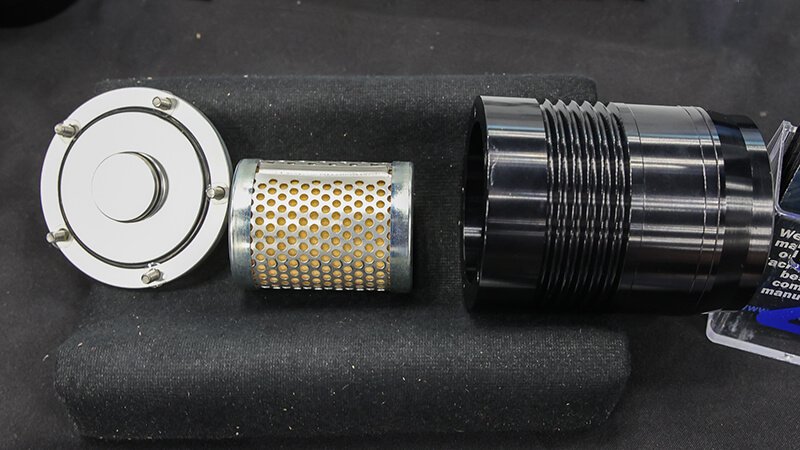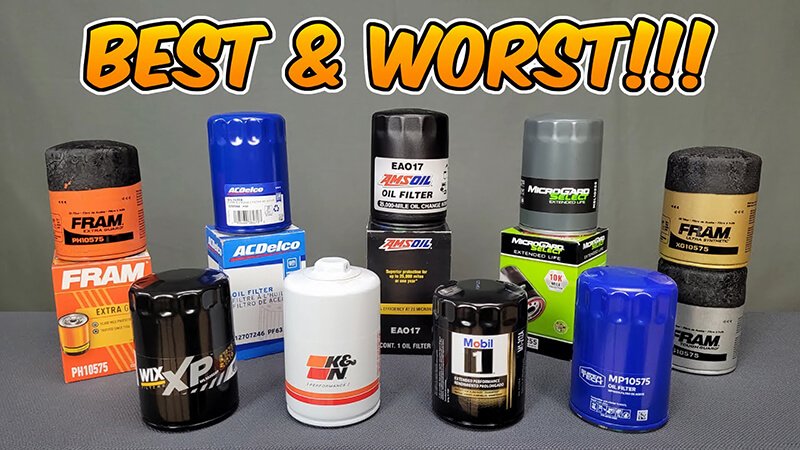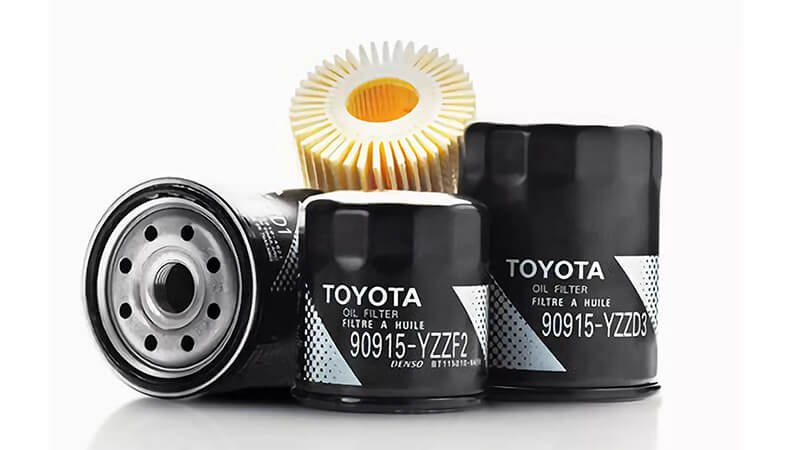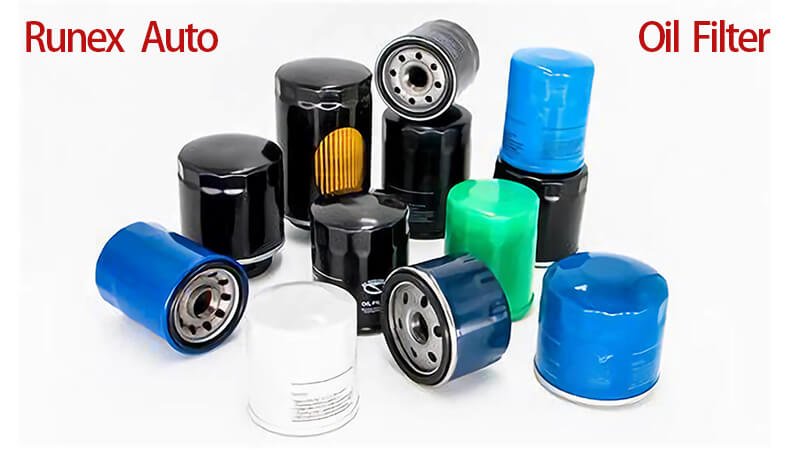Changing your oil but leaving the same old filter? It might save time now, but it can cost you engine life later. Many underestimate what a tiny part like the oil filter actually does—until it's too late.
Yes, you should always replace the oil filter when changing oil. The filter traps contaminants that used oil contains. If left unchanged, it pollutes the fresh oil and risks engine damage.
Fresh oil with a dirty filter is like brushing your teeth with a dirty toothbrush. If you want the oil to stay clean and protect the engine, you need to remove the source of contamination too. Let’s dig deeper into why this matters.

Can you get an oil change but no filter change?
Skipping the oil filter change might seem like a shortcut—until the consequences show up.
Technically, yes—you can change your oil and not the filter. But it's like wiping a table with a dirty rag. That new oil won’t stay clean for long, and the engine won’t get full protection.
Why skipping the filter is risky
Most of the particles that an oil filter traps—metal shavings, combustion soot, dirt—are too small to see, but they damage engine parts over time. Here’s why changing the filter with every oil change is important:
💡 What happens inside the engine
- Old filters clog and go into bypass mode, circulating unfiltered oil.
- Dirty filters cause fresh oil to degrade faster.
- They raise oil pressure, sometimes damaging seals or the pump.
Runex Auto’s Take
At Runex Auto, our oil filters1 use high-efficiency synthetic media that traps even microscopic contaminants. Compared to cellulose filters, ours maintain consistent oil flow longer, even under high-load conditions. We design for durability and stability across various vehicle types and climates.
| Feature | Runex Oil Filter | Typical Budget Filter |
|---|---|---|
| Filtration Efficiency | 98% @ 20 microns | ~85% @ 40 microns |
| Filter Media | Synthetic blend | Cellulose paper |
| Burst Pressure | 300 psi | ~200 psi |
| Anti-Drainback Valve | Silicone | Nitrile rubber |
We always encourage our fleet customers and distributors to pair fresh oil with a new filter. One client who used to skip filters saw engine sludge problems decline by over 60% after adopting this practice.

Is an oil filter change required?
There’s no law that says you must, but if you care about the engine, you know the answer.
No, it’s not legally required. But if you want clean oil to protect your engine, it’s practically necessary. Oil filters are cheap. Engine repairs are not.
The logic is simple
- Dirty filters ruin clean oil.
- Contaminants circulate and wear engine parts.
- Modern engines with tighter tolerances suffer more.
Why garages skip the filter
I’ve seen some quick lube shops or independent garages skip oil filter changes1 to cut costs or meet low-priced service packages. One of our distributors in Europe ran into a string of complaints from garages that kept seeing engines come back with sludge. Their customers were changing the oil but not the filter. Once we suggested bundling Runex oil filters into every kit, those complaints vanished. Warranty claims dropped by 70%.
Certified Performance
All Runex filters2 meet or exceed OEM specs and pass ISO 4548-12 multi-pass efficiency tests. Our designs also feature bypass valves calibrated for stable performance during cold starts or pressure surges. The idea is simple: protect the engine under every condition.

What if I never change the oil filter?
Imagine using the same coffee filter over and over—it eventually stops doing its job. Oil filters are no different.
If you never change your oil filter, sludge builds up, oil flow weakens, and unfiltered contaminants wear out engine components. It’s a shortcut to engine failure.
Long-term damage you won’t see right away
Hidden Dangers
- Sludge blocks tiny oil channels inside the engine.
- Bearings, camshafts, and lifters lose lubrication.
- Cold start wear increases due to pressure buildup.
- Fuel efficiency and power slowly degrade.
My real-world case
A small fleet operator we worked with in Southeast Asia skipped filter changes to save a few dollars per service. After 6 months, they started seeing engine lights, rough idles, and poor performance. Oil analysis showed high levels of insolubles—contaminants the filter should’ve caught. After switching to full-service oil + filter replacements with Runex kits, engine complaints1 dropped, and maintenance intervals became more predictable.
Educating Your Team
We now recommend all of our distributor partners include oil filters2 in every change kit. Not only does it reduce end-user issues, it builds trust and protects their brand long-term. For garages, it means fewer comebacks. For fleets, it means fewer breakdowns. For us, it means filters doing their job—keeping engines running clean.

How long can you go without replacing an oil filter?
That depends on how lucky you’re feeling—but luck isn’t a strategy.
Most manufacturers recommend changing the oil filter every time you change the oil. Waiting longer—especially more than 10,000 km—can lead to filter clogging and unfiltered oil circulating through the engine.
What's the limit?
Let’s break it down:
| Vehicle Type | Oil Change Interval1 | Filter Change Interval |
|---|---|---|
| Passenger Car | 5,000 – 10,000 km | With every oil change |
| Commercial Van | 8,000 – 12,000 km | With every oil change |
| Diesel Truck | 10,000 – 15,000 km | With every oil change |
Risk compounds with every skipped change
Filters don’t just get dirty—they get saturated. When that happens, a bypass valve opens, sending unfiltered oil to the engine. This is a safeguard, but not a solution. Modern engines, especially turbocharged ones, rely on clean oil. Unfiltered oil wears them down faster.
Runex Oil Filter Lifespan
Our filters are built for extended life but still designed to be replaced with every oil cycle. Thanks to our multilayer synthetic media and reinforced metal end caps, Runex filters2 hold more dirt and last longer—but they’re not immortal. No filter is.
We tell all our customers this: You wouldn’t wear the same socks for a week. Why keep the same filter for another 5,000 km?

Conclusion
Changing your oil without replacing the filter3 is like washing your clothes in dirty water. It defeats the purpose. Clean oil can only protect the engine if the filter isn't working against it. Runex Auto’s oil filters are designed to work in sync with fresh oil—every time. They trap more dirt, last longer, and protect your engine better. Whether you're a garage, fleet manager, or distributor, including a filter with every oil change isn’t just a best practice—it’s the standard for reliability. Don’t cut corners where it counts most.
-
Discover how high-efficiency oil filters can enhance engine performance and longevity, ensuring your vehicle runs smoothly. ↩ ↩ ↩ ↩
-
Understanding the significance of oil filter changes can help you maintain your engine's longevity and performance. ↩ ↩ ↩
-
Find the best quality OEM Auto Oil Filter from Runex Auto. ↩













